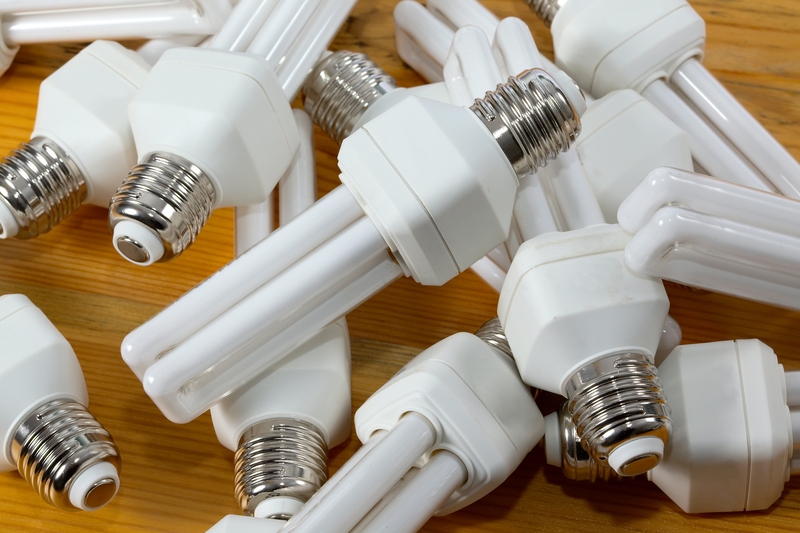Simplify Your Space: De-cluttering as Stress Therapy
Posted on 26/06/2025
Simplify Your Space: De-cluttering as Stress Therapy
Feeling overwhelmed at home or work? You're not alone. Modern life often bombards us with physical, mental, and digital clutter, all of which can contribute to increased stress levels. Luckily, creating a more peaceful and organized environment is within reach. Discover how decluttering your space can serve as an effective stress therapy and transform your daily life for the better.

Why Clutter Causes Stress
Clutter isn't just an eyesore--it impacts your well-being on several levels. Studies have shown that excessive mess can increase cortisol (the stress hormone), making you feel anxious, distracted, and even less productive. Here's how clutter negatively affects your life:
- Mental Overload: Visual chaos can overload your brain, making it harder to focus and process information.
- Time Wasted: Searching for lost items leads to frustration and wasted minutes that quickly add up.
- Emotional Baggage: Holding on to unneeded items may bind you to past experiences, preventing you from moving forward.
- Disrupted Daily Routines: Clutter can interfere with sleep, meal preparation, and interpersonal relationships.
Decluttering, as a form of stress relief, addresses each of these problems at its root.
The Therapeutic Benefits of Decluttering
1. Restores a Sense of Control
One of the biggest sources of stress is feeling out of control. Decluttering your space gives you agency and a renewed sense of mastery over your environment. By choosing what stays and what goes, you actively shape your surroundings to support your needs and goals.
2. Improves Mental Clarity
When your environment is organized, your thoughts become clearer. De-cluttering reduces distractions, improves focus, and makes decision-making easier. You'll feel lighter both physically and mentally, which directly contributes to reduced stress.
3. Enhances Mood and Well-being
A clean, orderly space invites calm and positivity. Decluttering as a stress therapy has been linked to lower anxiety and even feelings of happiness. It's an act of self-care that signals you value your own well-being. Plus, donating or recycling items creates a sense of social connection and purpose.
4. Encourages Healthy Routines
With less clutter, it's easier to maintain healthy habits. You'll cook more at home, sleep better, and enjoy time with loved ones without the mess getting in the way. In essence, simplifying your space simplifies your life.
Step-by-Step Guide: How to Declutter for Stress Relief
Ready to simplify your space and reap the stress-relieving benefits? Follow this comprehensive, easy-to-implement process:
Step 1: Set a Goal & Visualize Success
- Ask yourself: What do I want my space to feel like?
- Visualize: Picture your ideal environment--what's there, and what's gone?
- Set a clear intention for your de-cluttering session--whether it's to create a calming living room or a focused home office.
Step 2: Start Small, Stay Consistent
Avoid overwhelming yourself by trying to tackle everything at once. Declutter one shelf, drawer, or corner at a time. Consistency is key--the results will compound over days and weeks.
- Block out 15-30 minutes a day for focused tidying.
- Use a timer to keep yourself accountable and prevent burnout.
- Celebrate small wins--every item you remove is progress!
Step 3: Sort and Categorize
Divide items into four categories:
- Keep (useful, loved, necessary)
- Donate (good condition, useful to others)
- Recycle (paper, electronics, etc.)
- Trash (broken or unusable)
This process helps you make clear decisions and prevents "maybe" piles from piling up.
Step 4: Organize What Remains
Once you've cleared the excess, organize what stays in a way that makes sense for your daily routines.
- Group similar items together.
- Use storage solutions (bins, baskets, shelves) with clear labels.
- Keep frequently used items within easy reach.
Remember: A place for everything, and everything in its place.
Step 5: Adopt Mindful Habits
- One in, one out: For every new item you bring home, let one go.
- Perform regular "mini-declutters" to maintain order.
- Check in: Notice how a tidy space affects your mood and stress levels. Use this as motivation to keep going.
Decluttering Tips for Every Room
The Living Room
- Clear surfaces: Keep coffee tables and shelves free from excess items.
- Store remotes, chargers, and books in decorative baskets or containers.
- Donate unwatched DVDs, games, or old magazines.
Your Bedroom Sanctuary
- Remove clothes you haven't worn in a year.
- Limit nightstand items to a lamp, a book, or other necessities.
- Make your bed daily to instill a sense of order from the moment you wake up.
The Kitchen
- Empty countertops by storing away appliances you rarely use.
- Check pantry items for expiration dates, donating unexpired extras to local food banks.
- Use clear containers to avoid overbuying and keep contents visible.
Work and Study Spaces
- Clear paper clutter by digitizing important documents.
- Limit desk decor to just 1-2 meaningful items.
- Use cord organizers for electronics to keep things neat and safe.
Digital Clutter: The Overlooked Stressor
In today's tech-driven world, it's not just physical clutter that weighs us down. Digital mess--overflowing inboxes, unused apps, disorganized files--can sabotage productivity and peace of mind. Here's how to simplify your digital space for stress therapy:
- Unsubscribe from email lists you never read.
- Delete duplicate photos and files on your phone or computer.
- Organize files into clearly labeled folders and back up valuable data.
- Limit home screen apps to essentials for a cleaner phone interface.
Clearing digital clutter can be as soothing as tidying your home!
Decluttering Variations: Minimalism, Swedish Death Cleaning, and More
There's no one-size-fits-all method, but exploring popular approaches can spark ideas. Here are some well-known decluttering philosophies:
- Minimalism: Prioritizes owning only what adds value and joy; advocates for "less is more."
- KonMari Method: Developed by Marie Kondo, encourages keeping items that "spark joy."
- Swedish Death Cleaning: Gradually reducing unnecessary belongings to avoid burdening loved ones.
- One-a-Day Declutter: Removing just one item per day over time creates noticeable impact with little effort.
Choose the technique that best suits your lifestyle and emotional needs.
How to Overcome Decluttering Anxiety
Decluttering can be surprisingly emotional. Letting go of items--especially those tied to memories--sometimes brings up guilt, fear, or sadness. Here are some compassionate strategies to help you navigate these feelings:
- Start with non-sentimental items: Build confidence before moving on to things with stronger emotional ties.
- Ask yourself: Is keeping this item helping or hurting my well-being?
- Express gratitude for objects before parting with them--a key principle of the KonMari Method.
- Document memories: Take photos of items you wish to remember without keeping physical clutter.
- Invite support: Declutter with a friend, family member, or join online communities for encouragement.
Maintaining a Simplified, Stress-Free Space
The key to lasting change isn't just decluttering once--it's creating simple, regular habits that prevent mess from creeping back in. Consider these strategies:
- Daily reset: Spend a few minutes each evening returning items to their places.
- Monthly review: Regularly reassess areas prone to clutter, such as entryways or kids' rooms.
- Mindful shopping: Pause before making new purchases; ask if the item is essential or truly adds joy.
Decluttering as Self-Care: More Than Just Tidying
At its core, simplifying your space through decluttering is a profound act of self-care and stress therapy. It's about nurturing your inner peace, respecting your time, and honoring what matters most. Whether you're sorting through old souvenirs or clearing out your inbox, each step is a declaration that you deserve a harmonious, stress-free environment.
Remember, decluttering isn't about perfection--it's about progress. Every small effort brings you closer to a calmer, more focused, and joyful life.

FAQs: Decluttering and Stress Relief
How often should I declutter my home?
Ideally, practice minor decluttering weekly and schedule deeper tidying sessions every few months. The more regularly you maintain, the easier it becomes.
Is decluttering really effective for stress reduction?
Yes! Numerous psychological studies confirm the link between tidy environments and lower stress. Try keeping a clutter journal and note changes in your mood.
I feel overwhelmed. Where should I begin?
Start small--even tidying a single drawer or your desktop counts as a win.
Should I tackle decluttering alone or seek help?
Both approaches work. Some people prefer the solitude and reflection of solo decluttering, while others feel encouraged by involving friends, family, or even hiring professional organizers for added guidance.
Your Next Step: Embrace Decluttering as Stress Therapy
If chronic stress and overwhelm are taking their toll, it's time to take action, one item at a time. Simplifying your space is a gentle yet powerful therapy for both your body and mind. Imagine coming home to a peaceful retreat, or opening a closet to find only what you use and love.
Transform your home, your workspace, and your life--start decluttering today for a healthier, happier tomorrow.
Want more tips on using decluttering for stress management? Subscribe to our newsletter for weekly actionable strategies and exclusive resources to keep your space simple, stress-free, and inspiring!









